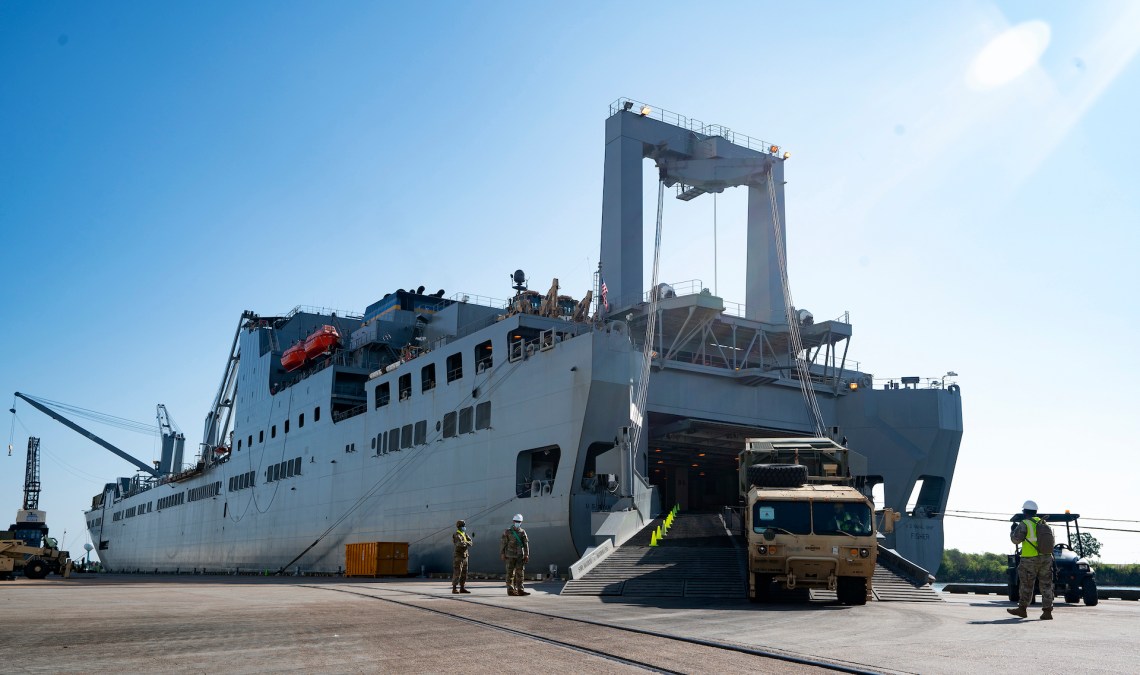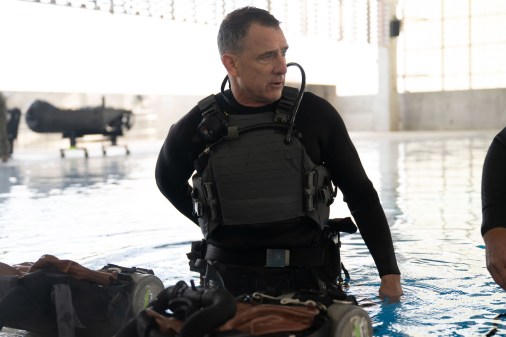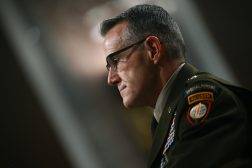DOD’s network defense arm is working to protect logistics for Transportation Command

BALTIMORE — The Department of Defense’s main network defense arm is taking a leading role in the cybersecurity of global logistics for Transportation Command.
Last year, Joint Force Headquarters-DOD Information Network — a subordinate headquarters under U.S. Cyber Command responsible for protecting and defending the Pentagon’s network globally — became the coordinating authority for Transcom. This coordinating authority provides each supported combatant command with a single commander who is responsible for planning, synchronizing and coordinating cyber support and operations.
Previously, the service cyber components to Cybercom — through what is known as their Joint Force Headquarters-Cyber — were the only organizations that had coordinating authority in cyber for combatant commands they supported.
Transcom is responsible for logistics and getting equipment around the world, coordinating with both military and commercial entities. As such, cybersecurity is of the utmost importance to the command given the private partners it works closely with.
In this new role, JFHQ-DODIN works with Transcom to understand its key missions and terrain to improve its cyber posture and ensure materials are delivered from point A to B.
“We can’t secure everything, so knowing the mission thread, knowing what Transcom needs to be able to move X piece of equipment from base A to Port B, what is the mission threat it’s going to take to get there? Therefore, I can make sure that along that mission threat, I secure the key cyber terrain that supports that mission,” Brig. Gen. Heather Blackwell, deputy commander of JFHQ-DODIN, said during a presentation at AFCEA’s TechNet Cyber conference in Baltimore on June 26.
Blackwell and others have noted this coordinating authority is a natural progression for JFHQ-DODIN to support Transcom given the command doesn’t conduct offensive operations.
“It is a natural connection because Transcom doesn’t have an offensive mission … We’re defense only. To be able to be that coordinating authority for Transcom as a voice into Cyber Command is a perfect alignment,” she told DefenseScoop in an interview at the conference.
The other Joint Force Headquarters-Cyber organizations are responsible for offensive and defensive operations. If JFHQ-DODIN needs offensive support, it can leverage the larger Cybercom enterprise it’s part of to help.
“Some of the things that Transcom will require are still outside of our purview, like for example, my authorities end at the DODIN. Transcom might need additional things off DODIN. But as the coordinating authority, we can take that requirement into Cyber Command and use Cyber Command’s authorities to help with some of that,” Blackwell told DefenseScoop, adding in remarks before the conference audience that if there is intelligence that a crucial port is being targeted by an adversary, they can call for offensive cyber help.
Now, JFHQ-DODIN and Transcom have worked to integrate their overall plans for stronger coordination.
“Aligning Transcom’s campaign plan with our campaign plan for global logistics and doing that overlay will make sure that we’re focusing on the unity of action in this space,” Blackwell said.
The two organizations held a global logistics summit last week at Cybercom with Lt. Gen. Robert Skinner, JFHQ-DODIN commander, and Lt. Gen. John Sullivan, the deputy commander for Transcom.
Participants went through several vignettes and mission threads to understand what Transcom requires to perform its mission. With the understanding of what Transcom needs, JFHQ-DODIN can then better apply its capabilities and intelligence to understand what systems adversaries could be targeting and what might be vulnerable to remediate them.
“What we’re doing collectively is we’re highlighting the cybersecurity within the logistics arena … As companies are moving logistics across the world, we need to make sure that we are emphasizing that cybersecurity of the data so that we can ensure that it makes it to where it’s going,” Col. Jessica Haugland, chief of global logistics at JFHQ-DODIN and the organizer of the summit, told DefenseScoop on the sidelines of the conference.
Blackwell said that following the summit, they have action items they’ll be pursuing, such as whether to conduct another tabletop exercise and make sure the mission threads are secure, both from a cyber resiliency perspective and from a Transcom perspective.






